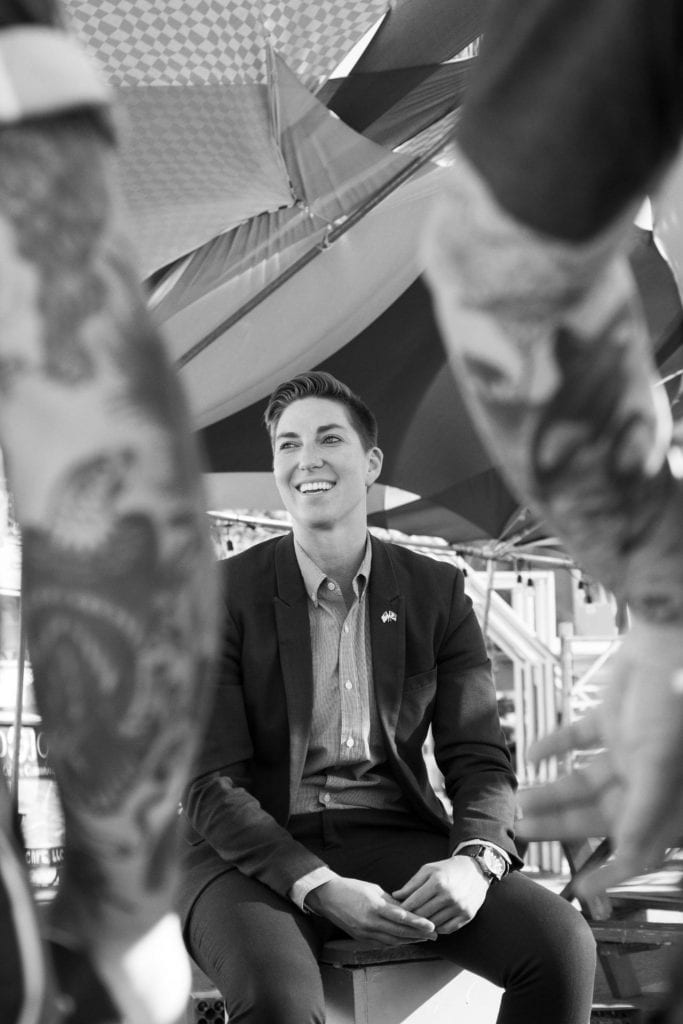I started the MAPL program in 2019, a few weeks before getting out of the Marine Corps. I’d spent the last seven years on active duty as a Combat Engineer Officer, and before that worked as a human rights advocate in Washington, DC. In both my advocacy work and military career, at home and abroad, I saw how the decisions of elected leaders made a real impact on people’s lives. I was excited to enroll in the MAPL program at USF because it seemed like the perfect bridge to my next chapter. I wanted to be more involved in shaping decisions made by elected leaders, whether that meant working in government or potentially even running myself.
Little did I know that just six weeks after I got out of the Marine Corps, halfway through my first MAPL semester, my Congresswoman would announce her retirement, taking the San Diego political establishment entirely by surprise. I decided to throw my hat into the arena. The race was short; less than six months. While I didn’t end up making it through the primary, the resources, support, and encouragement the MAPL network provided were integral to navigating my first race.
Running for office so quickly after hanging up my uniform was a crash lesson in becoming comfortable with saying controversial, political, and even partisan things out loud. For those of us who have served, even if we care deeply about politics and have strong opinions, we learn to keep them to ourselves or to only discuss such topics in private. As a candidate, the rules are completely different: you are required to state your opinions out loud so everyone can hear you. Every day on the campaign trail, I felt that I had the incredible privilege of a platform to discuss issues that mattered to me, to call out injustice, and to openly criticize decisions made by elected officials. I never took that privilege lightly.
Now that my race is over, that platform I built is still there, and I still feel a responsibility to speak up if I can make a difference. In the early weeks of the pandemic, I spoke with local elected officials—mentors and friends—as well as military leaders at all levels. San Diego is a military town. We have the highest concentration of active-duty troops and veterans in the nation. What DOD and the Secretary of Defense do—or don’t do—in the face of this pandemic has vast consequences for our entire region. With COVID-19 cases mounting on the San Diego-based USS Theodore Roosevelt, different military installations across San Diego issuing different guidance, and a palpable sense of panic emanating from military families, it was clear to me that SecDef was not doing enough. The following is my op-ed on the topic, published in The San Diego Union-Tribune on April 1, 2020. —Janessa Goldbeck

